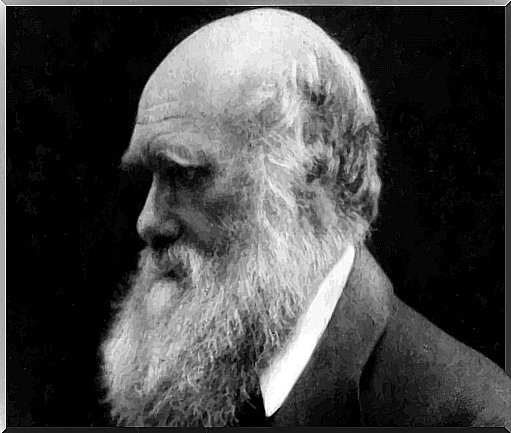Origin Of Religions And Darwinian Theory

Over the past 150 years, hypotheses about the origin of religions and Darwinian theory have been closely linked. Thanks to his work, Darwin revolutionized everything we knew about our origin and evolution. It changed our view of who we were and, consequently, who we are today.
Charles Darwin dedicated a chapter of one of his most important books, The Origin of Man, to the origin of religions . According to the British naturalist, if our characteristics are the result of evolution, religion is no different.
The Darwinian theory
Charles Darwin left one of the most important legacies in the history of science. The publication of The Origin of Species revolutionized everything that was known about the emergence of life on Earth.
Although his thinking has given rise to numerous controversies, the influence has been enormous. His discoveries have conditioned the way of understanding the human being and the scientific thought of the last 100 years; they blazed a new path to learn about past, present and future life on our planet.
Once Darwin proved that creationist theory has nothing to do with the emergence of life on Earth, why mention religions? The author shows that behavior and the brain are equally the product of human evolution. In other words, everything that has survived the passage of time, including religion, must have an evolutionary explanation.

The origin of religions in the light of Charles Darwin’s theories
One of the most important texts on the relationship between Darwinian evolutionism and the origin of religions is Elizabeth Culotta’s essay On the Origin of Religion , published on the Origins blog of the prestigious scientific journal Science .
According to the author, there is a human and natural propensity to believe in invisible divinities. To develop this concept, he is inspired by the theories of Darwin, who already in his time believed that faith in gods and religions was by no means a mysterious phenomenon. According to Darwin, at the very moment in which the human being was able to reason, he began to ask himself questions about his own existence. However, a scientific method was replaced by curiosity, imagination and wonder.
This means that the human being, curious by nature, sought an explanation for his origin. In the absence of answers, religion was born naturally in the human mind. Thanks to this, it has been possible to set up a cognitive science based on anthropology, neuroscience and psychology that sheds light on the mental construction of religious thought.

Other sources
In his work, Culotta cites other interesting sources; for example, the study of experimental psychologist Justin Barrett of the University of Oxford. Following Darwinian theories, Barrett identified functional properties in human cognitive systems that lead us to believe in supernatural agents, that is , something like a god.
This hypothesis can easily be traced back to Darwin’s thinking, since both consider the elaboration and roots of religions as elements of a sophisticated social cognition.
According to the psychologist Paul Bloom of Yale University, the human being has a great ability to imbue everything with spirituality, including inanimate objects. This is how beliefs, desires, emotions and even consciousness develop, thus forming the core of a religious movement.
The basis always seems to be Darwin’s theory on the origin of religions, who came to compare our pursuit of the existence of gods to the love that a dog professes for its master. There is no doubt that Darwin was the forerunner who paved the way for current theories.









